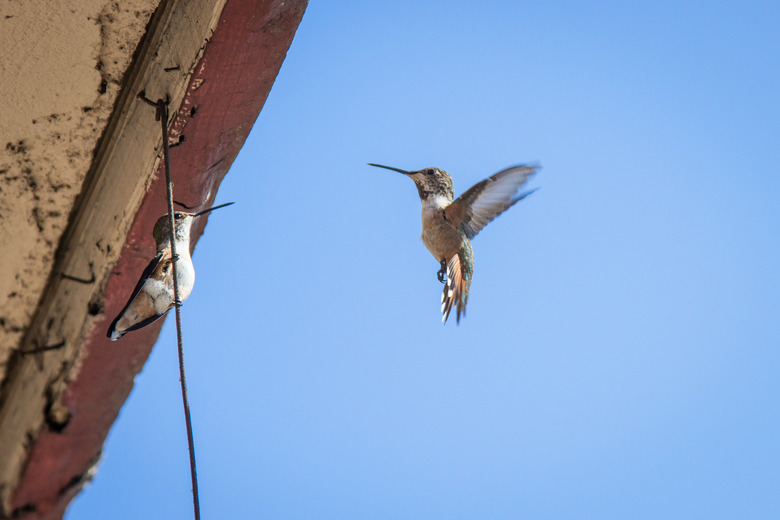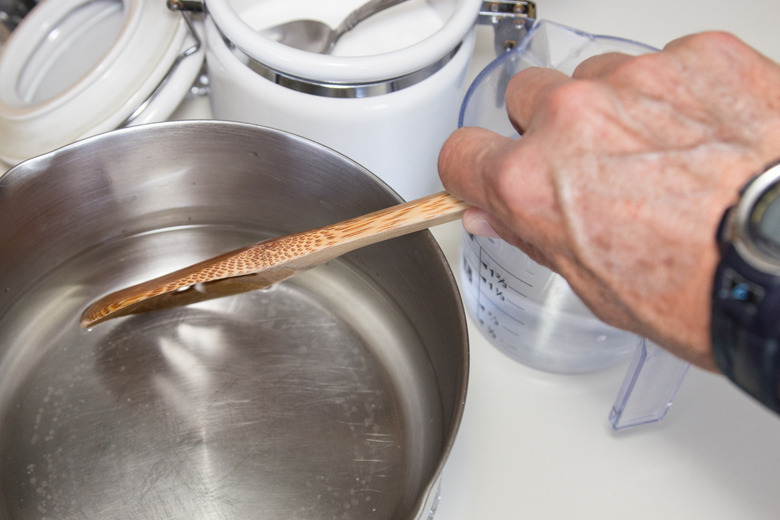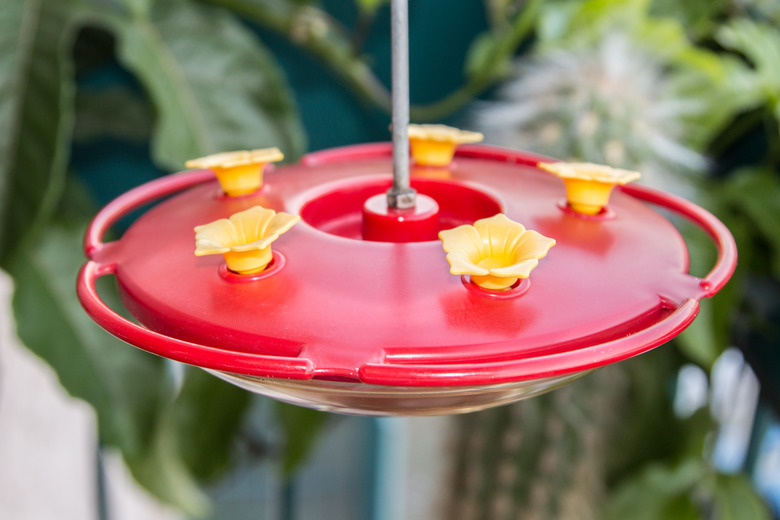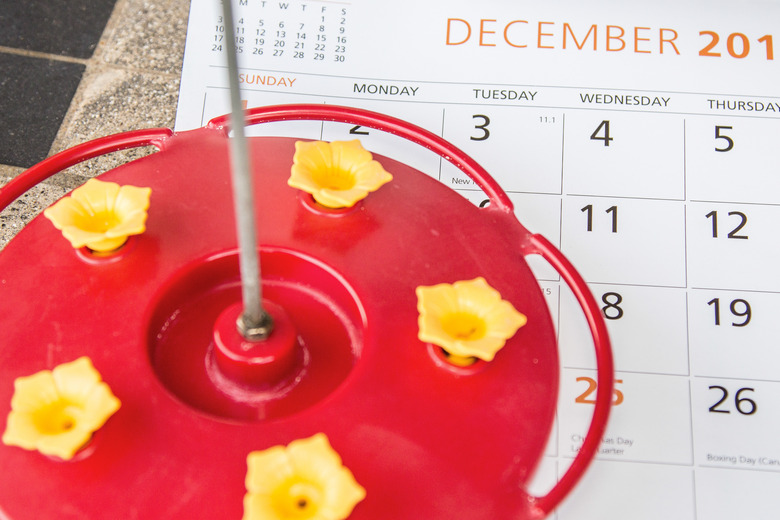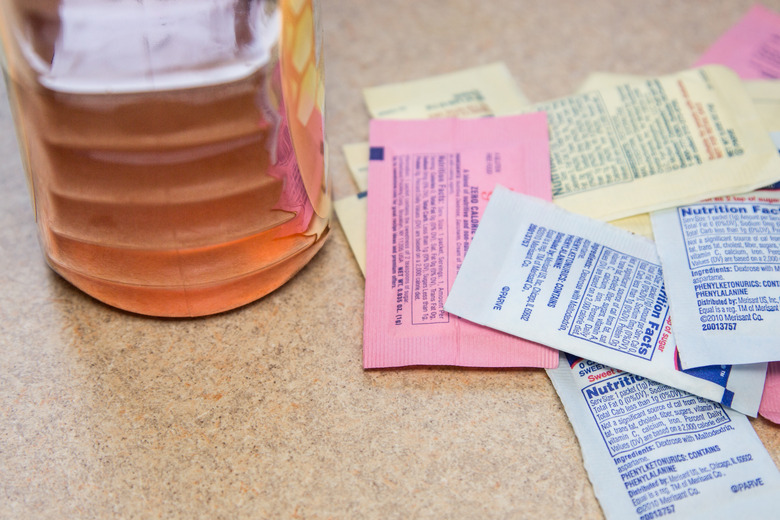Hummingbird Sugar Water Recipe
Hummingbirds are fun to watch in your garden. They eat nectar from flowers and are drawn to gardens with red and pink blooms. You can attract these delightful birds to your yard even if you don't have any flowers by setting out a hummingbird feeder that is filled with a nectar substitute made from sugar water.
Recipe
Recipe
The hummingbird sugar water recipe has only two ingredients, water and sugar. To make the nectar, add one cup of sugar to four cups of water. Boil this mixture for one minute and remove from heat.Overheating can cause the water to evaporate and change the sugar concentration of the mixture. When the sugar water has completely cooled, it is ready to pour into a clean hummingbird feeder.
Feeders
Feeders
Hummingbird feeders are usually designed to look like big red flowers in order to attract the attention of the birds. Because the feeder is red, it is not necessary to add red food coloring to the sugar water. Clean the feeder at least twice a week to prevent bacterial growth. Soak the feeder once a month to kill mold. Place your hummingbird feeder in the shade as this slows the rate at which the sugar water spoils and makes the feeder less appealing to insects.
When to Feed
When to Feed
Hummingbirds migrate south for the winter. The best time to put out a feeder for hummingbirds if you live in the south is during the middle of March. If you live in the northern states, put up a hummingbird feeder around the first of April. You can take your hummingbird feeders down by the first of October. You can leave a feeder out during the winter months if freezing is not a problem.
Precautions
Precautions
Hummingbirds tend to fight over feeders, so Oregon State University recommends that you place feeders far apart. They also say to use only sugar in the hummingbird nectar recipe. Honey encourages the growth of fungus and other organisms that might harm the birds. Artificial sweeteners must also be avoided since these provide no calories for the birds and may cause them to starve.
